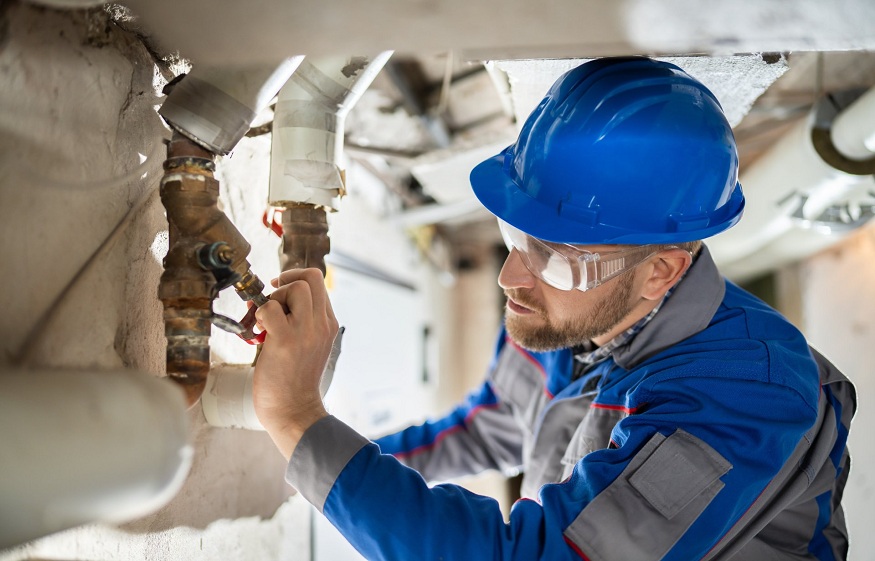The Key Differences Between Residential and Commercial Plumbing
When it comes to plumbing services in Newport Beach, there are two distinct categories—residential and commercial. While both involve the installation and repair of pipes, fixtures, and other plumbing components, there are some key differences between the two. To avoid costly plumbing mistakes, it is important to understand these differences. Let’s break them down.
Residential vs Commercial Plumbing
When it comes to residential plumbing, the focus is primarily on maintaining the pipes and fixtures in an individual’s home or apartment. This means that residential plumbers typically deal with smaller-scale projects involving fewer people than commercial plumbers do. Their services also usually involve more basic repairs and installations such as replacing a sink or fixing a broken pipe.
On the other hand, commercial plumbers typically work with businesses or large buildings such as office buildings or hotels. As a result, their services often involve more complex tasks such as installing new pipelines for multiple bathrooms in an office building or repairing a large-scale sewer system in a hotel. Additionally, since commercial plumbing works with so many people at once (e.g., all of the tenants in an apartment building), they must be able to handle larger projects while still ensuring customer satisfaction.
The Tools Used by Each Type of Plumber
Another difference between residential and commercial plumbing is the types of tools used by each type of plumber. Residential plumbers use tools like augers and plungers to clear clogged drains or fix minor leaks whereas commercial plumbers use more specialized tools like pressure gauges and backflow prevention devices for larger scale jobs like installing sprinkler systems for fire safety or inspecting boilers for efficiency purposes. Additionally, most commercial plumbers need experience working with high-pressure water mains which requires even more specialized tools than those used by residential plumbers.
The tools used by each type of plumber can make all the difference in a successful residential or commercial plumbing job. Residential plumbers primarily rely on hand tools such as augers and plungers, wrenches, and hacksaws to complete basic repairs and installations. These tools are also used for clearing clogged drains and fixing minor leaks. Commercial plumbers, however, require more specialized tools such as pressure gauges, backflow prevention devices, water pumps, blow torches and threading machines to handle large-scale plumbing jobs such as installing sprinkler systems for fire safety or inspecting boilers for efficiency purposes. Additionally, since the pipes in commercial buildings are often larger than those in residential homes, commercial plumbers must use bigger wrench sizes and utilize power tools like drills, saws, and sanders to complete these jobs.
When it comes to the tricky task of plumbing maintenance, having the right tools for the job is essential. Residential plumbers require basic hand tools to make repairs or install fixtures. For more complex jobs, such as those involving large-scale commercial buildings, commercial plumbers need specialized tools such as pressure gauges and backflow prevention devices in order to ensure a successful outcome. Additionally, due to the larger diameters of pipes found in commercial applications, power tools may be necessary for certain tasks. By understanding the differences between residential and commercial plumbing projects, you can ensure that your project is completed with quality results by an experienced professional using the right tools for the job.
Finally, when hiring a residential or commercial plumber, it is important to make sure that they are licensed and have the proper tools for the job. Licensed professionals will be able to provide you with quality results and use the right tools to ensure that your plumbing project is completed properly and safely. If the plumber does not have specific experience in either residential or commercial applications, you may want to consider looking elsewhere for someone who has more specialized skills and tools. By taking these precautions, you can rest assured knowing that your plumbing project will be handled professionally with the best available tools.
In conclusion, there are several key differences between residential and commercial plumbing that you should be aware of when deciding which type of service you need for your project. Residential plumbing focuses on repairing and installing basic fixtures in homes whereas commercial plumbing involves much larger projects with many people involved at once requiring special expertise and equipment to complete successfully. Knowing these differences can help you make sure that your project gets done right the first time!

